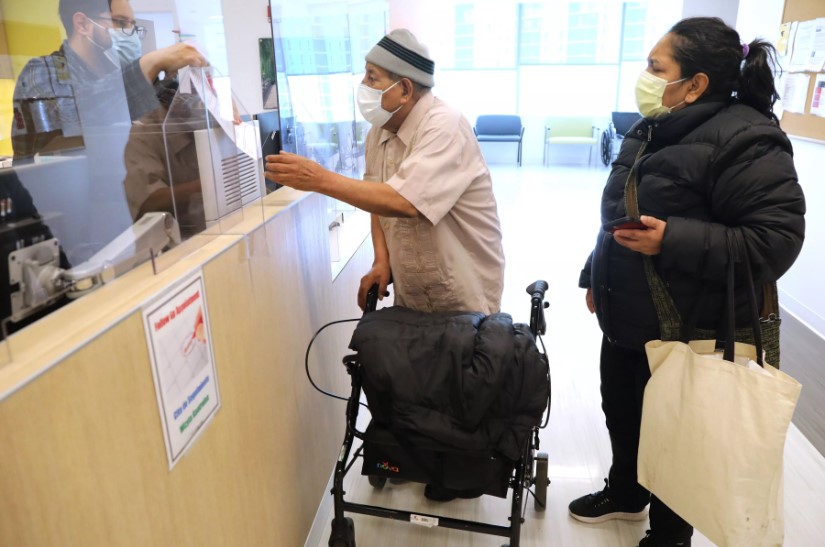Photo Caption: Ananias Ocampo receives paperwork following an appointment with a dermatologist at Cook County Health on March 14, 2022. At right is advocate and caregiver Hilda Burgos. Ocampo has health insurance thanks to Illinois’ Medicaid-like program that helps immigrants 65 and older regardless of their immigration status. (Antonio Perez / Chicago Tribune)
VOICE OF THE PEOPLE
As seen in The Chicago Tribune
Tuesday, April 5, 2022
Helping undocumented older adults
How inspiring to wake up Sunday morning and see yet another front-page newspaper article (“A dangerous pitfall for a vulnerable population,” March 27) from the Tribune’s multipart series “Aging in the Shadows.” This ground-breaking series is helping us understand how undocumented older adults navigate healthcare inequities, housing insecurity, and economic uncertainty.
At RRF Foundation for Aging, we applaud our grantee partner, Injustice Watch, and the Chicago Tribune for addressing the pressing information gap on this subject and creating public discourse on the matter. We acknowledge the magnitude of the issue and the critical need for more action and collective solutions.
Our commitment to the well-being of older adults also includes recognition of the Illinois Health Benefits for Immigrant Seniors Program established in 2020. This state-funded, Medicaid-like program, the first in the nation, provides healthcare coverage for uninsured, low-income, undocumented adults age 65 and older. RRF Foundation for Aging is proud to have supported this effort by helping advance the incredible advocacy work of the Shriver Center on Poverty Law, which trains outreach teams to identify, engage and help enroll older adults living in Illinois into the program regardless of their U.S. citizenship status. As a result, between 7,000 and 9,000 older adult immigrants have registered for free, comprehensive healthcare coverage.
But there is far more work to do. “Aging in the shadows” shines a light on a topic that is much larger than one state and one series. It’s a complex situation requiring a concerted effort and policy changes at local, state, and national levels. Recent efforts — addressing the information gap, public awareness, community engagement, and advocacy — are an important start. A network of impressive community leaders, including Constantina Mizis from Latino Alzheimer’s and Memory Disorders Alliance in Chicago, who was quoted in the March 27 article, work tirelessly on older adults’ behalf. I applaud and stand with them.
Mary O’Donnell, President
RRF Foundation for Aging
Chicago, IL



